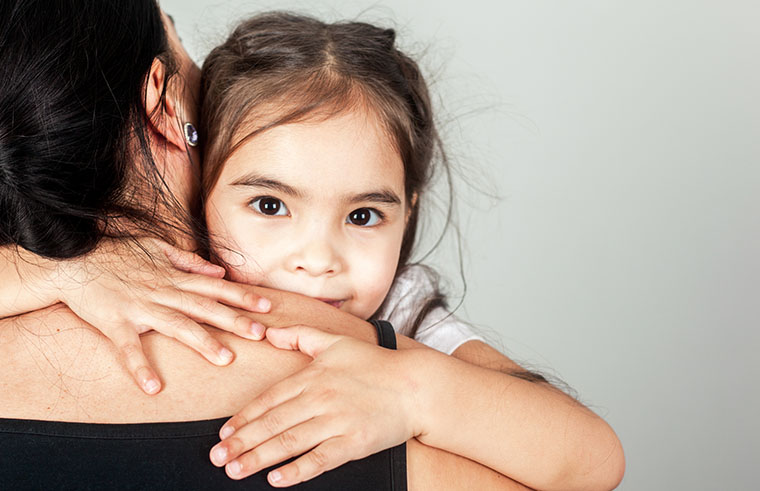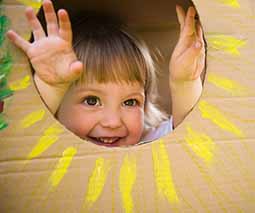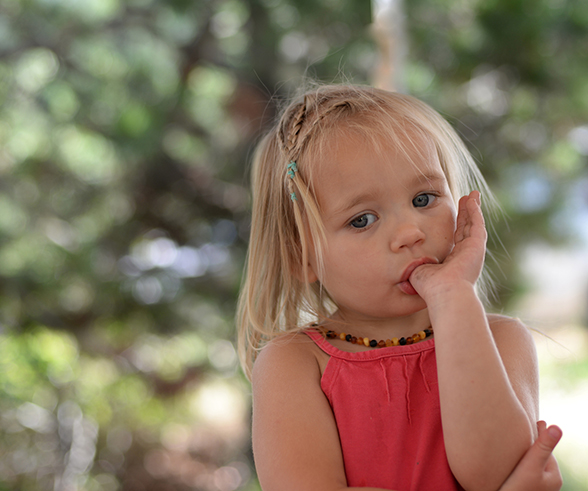Love languages: 5 ways your children know they are loved

As a mother of four daughters, it’s a constant juggling act trying to ensure everyone’s needs are being met. I often feel like I’m being pulled multiple directions at the same time – it can get pretty intense!
The other week, I was snuggling my nine-year-old in bed as she read her favourite book, when it dawned on me that maybe ‘love languages’ apply to children too.
If you haven’t heard of the concept of love languages, it was created by American author Gary Chapman who theorised that people tend to show their love to others in a way they prefer to receive love themselves. According to Chapman, there are five distinct love languages.
Watching how your children show love to others will help you figure out which one applies to them.

So what are the love languages?
Love language 1: Words of affirmation
If you have a child who enjoys receiving praise, then this might be their love language. Does their face light up when you compliment them on their work or something they’ve done? If they seek verbal affirmations from you and seem to need it more than anything else, then this might be the love language that your little one connects with most.
Love language 2: Quality time
Something that my third daughter seems to enjoy above anything else is ‘special time’ with her mum, where it’s just the two of us without interruptions from her siblings. She will happily forego an excess of compliments if it means she gets to spend quality time with me.
Love language 3: Receiving gifts
A child who relishes being given a thoughtful gift often loves giving to others, too. They can be found ‘creating and making’ for others, presenting little masterpieces. Receiving gifts as a love language needn’t be expensive or elaborate, either. It could be something as small as a flower that is picked especially for them or perhaps remembering to buy their favourite fruit. It’s the thought that counts, so if this sounds like something your child enjoys then this could be their love language.
Love language 4: Acts of service
If you are the parent of a child who seems to get great joy out of doing things altruistically for others, then perhaps this is their love language. Maybe they’re always asking if they can help out, even if it’s just the dishes – either way, they enjoy showing love by helping others. For example, there is no greater joy for my eldest daughter than when I organise her bookshelves and stationery drawer as a surprise for her. I can tell she feels loved after I do this simple act, and the gratitude she expresses is long-lasting.
Love language 5: Physical touch
This made me think of my daughter the other week, as she cuddled close to me. She seeks out affection as a message of love, and I know that her ‘cup’ is refilled after spending close, cuddly quality time with me of an evening. If you have a child who loves being in your lap, in your arms or is always snuggling by your side, then I’d hazard a guess that physical touch is their love language.
When I considered each of my daughter’s love languages, I felt an immediate sense of connection with them. It was like I was seeing things through their eyes.
Just by spending a little time observing your child’s habits and the ways they show love to others, it’s possible for you to see the ways that make them feel most loved and cherished themselves. And it’s something you can draw on all throughout their childhood and into adulthood as well.
 Need some support to be the best parent you can be? Our Parent School parent coaching experts can help. Click to find out more or book a one-on-one session.
Need some support to be the best parent you can be? Our Parent School parent coaching experts can help. Click to find out more or book a one-on-one session.









